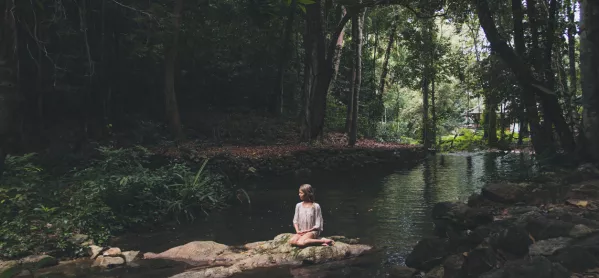- Home
- Exams board confirms natural history GCSE plans
Exams board confirms natural history GCSE plans

The OCR exams board has confirmed it plans to develop a new GCSE in natural history to help pupils develop a greater understanding of the natural environment.
As reported by the i today, the board hopes the GCSE will respond to pupils’ growing interest in conserving the natural world.
The qualification was developed by the nature writer Mary Colwell and Green Party MP Caroline Lucas.
Related: Are outdoor lessons just a distraction?
News: Meet the UK pupils striking against climate change
Quick-read: Climate change: Teaching the truth of natural disasters
Tim Oates, Cambridge Assessment’s director of research and development, told Tes that the plans reflected an “urgent need to encourage re-engagement with nature”.
He said that while Cambridge Assessment was aware of the need for the government’s moratorium on new qualifications - which has now come to an end - to ensure stability in the exams system, “it’s also clear that ensuring children are well connected with the environment is essential”.
Mr Oates said there seemed to be a misconception that natural history was not currently taught in schools, and pointed out that under the 2014 primary framework pupils must learn about the classification of different organisms.
He said that as pupils covered these skills at primary level and as part of biology and geography studies at secondary school, it was “important that it culminates in some form of accredited qualification” and would ensure schools take natural history seriously.
The new GCSE would sit within the English Baccalaureate (EBacc) as one of the optional subjects pupils could take alongside core subjects such as maths and English. Mr Oates said he hoped its introduction would reverse decades in which zoological studies had been overlooked, including within higher education.
“There’s a lot of reported disconnection between the environment and people,” he said. ”[Nature writer] Robert Macfarlane said even the names of common British species are falling out of common use.
“Children cannot name the flora and fauna around them - this is very important for our sense of location and identity. It’s to help young people to understand that schools are part of the solution to environmental challenges we face and not part of the problem.”
Studies would analyse how the natural world has been represented in art and literature - for example, how the goldfinch has historically been used to represent Christ - and carry out fieldwork where pupils would log observations of the natural world and collect data on seasonal changes.
Mr Oates said that with a “fair wind” it was likely the course could be introduced from September 2022. He said there would be no disparity between schools in urban and rural areas in opportunities to study the natural world.
He said: “I was in a school in North London quite near the North Circular, only to see a pair of kestrels on the corner of the building eyeing up their ‘small bird’ prey around the school site.
“People talk about seagulls, but gulls appear in urban areas, so urban areas are absolutely chock-full of observation. The regreening of our cities is testament to how the natural world can be seem in the urban environment as the rural one. It will be as relevant to children in hard-bitten urban environments as it is to pupils in the countryside.”
A spokesperson for OCR said: “Tim Oates has been working for some years now with the naturalist Mary Colwell on her vision for a GCSE in natural history.
“We are now at the stage where the proposals are being actively looked at by ourselves, as well as by others in Cambridge Assessment. We’ll consult with stakeholders such as teachers and subject associations to get their views and we hope to be able to reveal more developments soon.”
A Department for Education spokesperson said: “The department has not made any commitment to introducing a GCSE in natural history but would consider any proposal from an exam board interested in offering the subject.
“Any such proposal would need to meet the same high standards and regulatory rules that we and Ofqual require from all GCSEs.”
An Ofqual spokesperson said: “We are aware of proposals for a new natural history GCSE. It is for government to decide whether there should be such a GCSE - if so, we stand ready to work with the sector to develop the qualification to the standard expected from 9 to 1 GCSEs.”
Keep reading for just £1 per month
You've reached your limit of free articles this month. Subscribe for £1 per month for three months and get:
- Unlimited access to all Tes magazine content
- Exclusive subscriber-only stories
- Award-winning email newsletters



